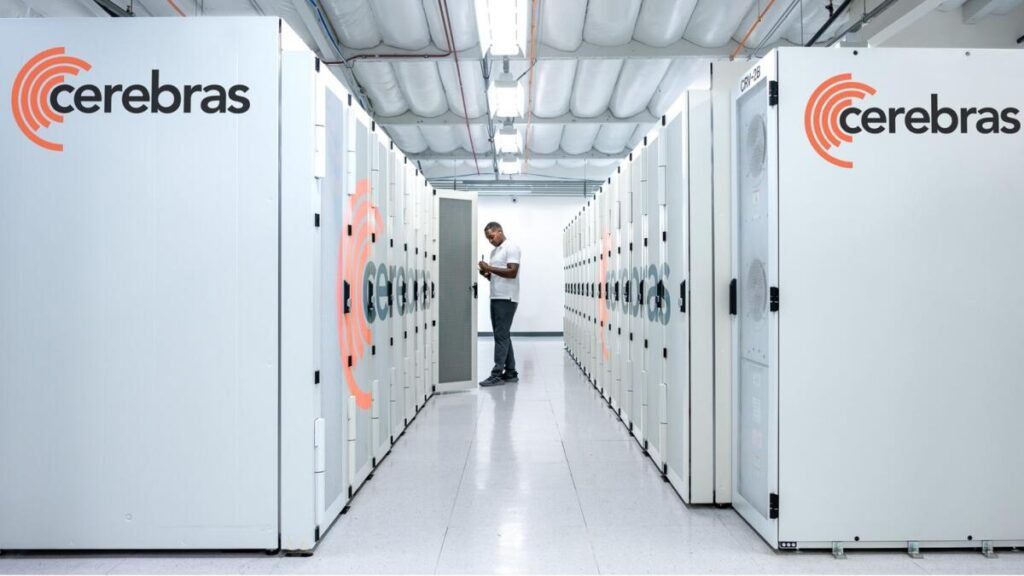Abu Dhabi’s G42, an AI and cloud computing company, has launched what they claim to be the “world’s largest supercomputer” in collaboration with the US-based AI firm, Cerebras Systems.
The newly unveiled supercomputer, named Condor Galaxy, comprises a network of nine interconnected supercomputers, focusing on addressing challenges in healthcare, energy, and climate action through the use of artificial intelligence.
The first supercomputer in this network, Condor Galaxy 1 (CG-1), boasts an impressive capacity of 4 exaflops and is equipped with 54 million cores. Notably, an exaflop is a performance measurement unit for supercomputers.
Looking ahead, Cerebras and G42 are planning to introduce two additional supercomputers, CG-2 and CG-3, in the United States by early 2024.
According to Andrew Feldman, the CEO of Cerebras Systems, the current titleholder for the world’s largest supercomputer is the Frontier supercomputer at the US Department of Energy’s Oak Ridge National Laboratory, which achieves 1.1 exaflops of performance.
“In the UAE, there’s a national AI plan, part of which is to use AI to improve productivity at all levels across the government and economy,” Talal Alkaissi, chief executive of G42 Cloud, a subsidiary of G42, said during an online briefing.”
“And we believe the compute we are providing through this partnership will play a large role in the ability to create disruptive change in various different sectors.”
“G42 is already working on AI applications across industries including health care, smart cities, smart mobility, energy transition, financial services, sports, space exploration and big data analytics,” he said.
“The announcement puts in place the much-needed infrastructure to power the vital research, deliver applications and improve efficiencies in our enterprises and the quality of our lives.”
“Mr Feldman said Candor Galaxy 1 has begun operations in Santa Clara, California and G42 scientists researchers have pioneering AI models up and running already.”
“And together in partnership, we plan to expand to three interconnected US-based AI supercomputers and then to expand to six more for a total of nine, 4 exaflop AI supercomputers linked together producing a 36 exaflop distributed AI supercomputer, the largest in the world,” he added.
Supercomputers, significantly more powerful than general-purpose computers, are renowned for tackling the world’s most challenging problems, such as medicine development, oil and gas exploration, and weather forecasting.
In May, Google made headlines at the I/O conference in Mountain View, California, by announcing their new A3 supercomputer dedicated to training machine learning and AI models.
Developed in collaboration with Nvidia, a prominent AI hardware and software provider known for manufacturing graphics processing units (GPUs) for various industries, this cutting-edge technology aims to provide a comprehensive range of GPU options for training and inferring machine learning models.
GPUs, capable of handling multiple tasks concurrently, are especially valuable in applications like machine learning, video editing, and gaming.
Elon Musk, the billionaire entrepreneur, is also investing a substantial $1B into his Dojo supercomputer project.
Cerebras and G42 are offering CG-1 as a cloud service, enabling customers to access the power of an AI supercomputer without the complexities of managing or distributing models across physical systems. CG-1’s design facilitates quick and seamless training of large, groundbreaking models, contributing to significant advancements in Arabic bilingual chat, healthcare, and climate studies, as reported by the collaborating companies.
Projections from Brainy Insights estimate that the global generative AI market will reach an impressive $188.62B by 2032, with an annual growth rate exceeding 36 per cent from last year’s $8.65B.
According to a report from Alibaba Damo Academy, China’s Alibaba Group’s global research arm, AI will be a dominant theme among the top 10 technology trends in the coming years. This technological advancement is expected to drive breakthroughs in various economic sectors and society as a whole.
Mubadala Investment Company backs G42, which conducts high-level fundamental and applied research in AI and develops cloud computing solutions for the most demanding use cases. The group boasts nine companies under its umbrella, comprising a workforce of 22,000 employees.
The company also secured a “substantial” investment from US-based private equity manager Silver Lake, whose managing partner and co-chief executive Egon Durban joined G42’s board as part of the deal in 2021.
“Many cloud companies have announced massive GPU clusters that cost billions of dollars to build, but that are extremely difficult to use,” said Mr Feldman said.
“Distributing a single model over thousands of tiny GPUs takes months of time from dozens of people with rare expertise. CG-1 eliminates this challenge. Setting up a generative AI model takes minutes, not months and can be done by a single person.”
The use of AI is surging globally with nearly all geographies adopting it across several business functions, Mr Feldman said.
“The real story here is this is not a US phenomenon. This is a global phenomenon and this is perhaps the largest single technology shift that we’ve seen in a generation and into this transformation Cerebras and G42 have forged a strategic partnership.”


